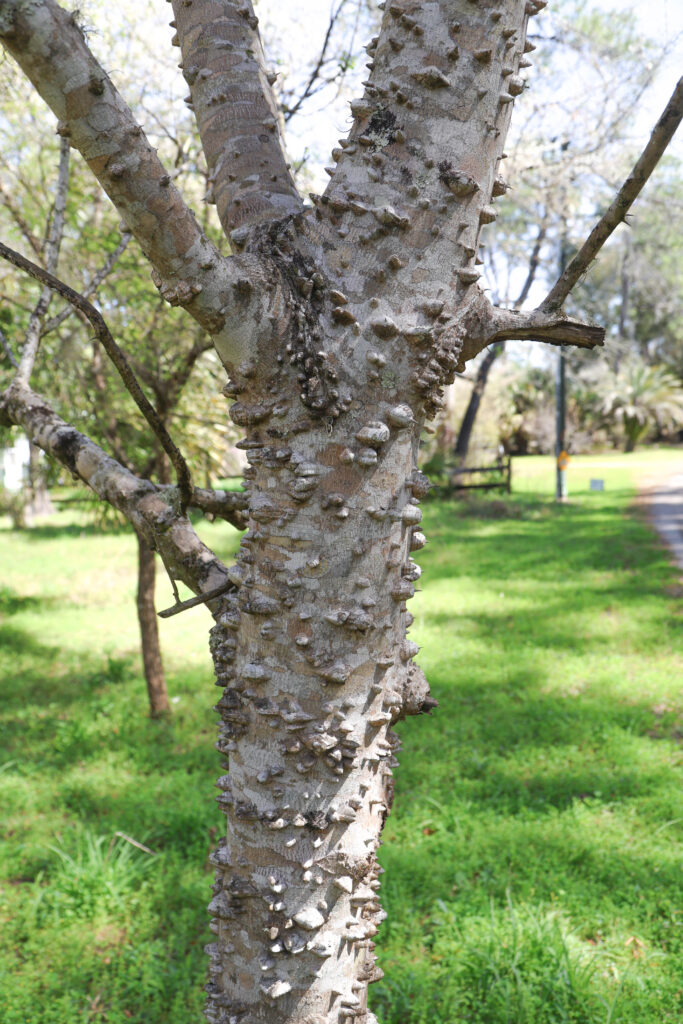
Description
Peripheral neuropathy is caused by damage or disease to the peripheral nerves. These nerves (bundles of neurons) extend out from the brain and spinal cord (the central nervous system) and throughout the rest of the body (the peripheral nervous system). They innervate (stimulate) all the areas outside the central nervous system. Motor neuropathy affects the vluntary muscles that we have conscious control over. Autonomic neuropathy affects nerves that are ‘automatic’; those we don’t have to think about to function, such as our digestive system. Sensory neuropathy affects the sensory nerves that regulate our senses, including vision, touch, taste, and balance.
Symptoms depend on which nerve(s) are affected. For autonomic neuropathy, the symptoms depend on the specific organ affected. For instance, the digestive system (pain, malabsorption), cardiovascular (abnormal heart rate), and urinary system (bladder control). Symptoms of sensory neuropathy include numbness, pins and needles, pain, and tingling sensations. Motor neuropathy symptoms include muscle weakness, foot drop, and cramps.
There are a number of disorders that can cause peripheral neuropathy, the most common being diabetes. Other causes include physical injury (such as body trauma or repetitive actions as with carpal tunnel syndrome), medications (including chemotherapy and some antibiotics), toxin exposure, nutritional deficiency, and excessive alcohol consumption. Neuropathy can also stem from genetic and idiopathic (no obvious pathology) causes.
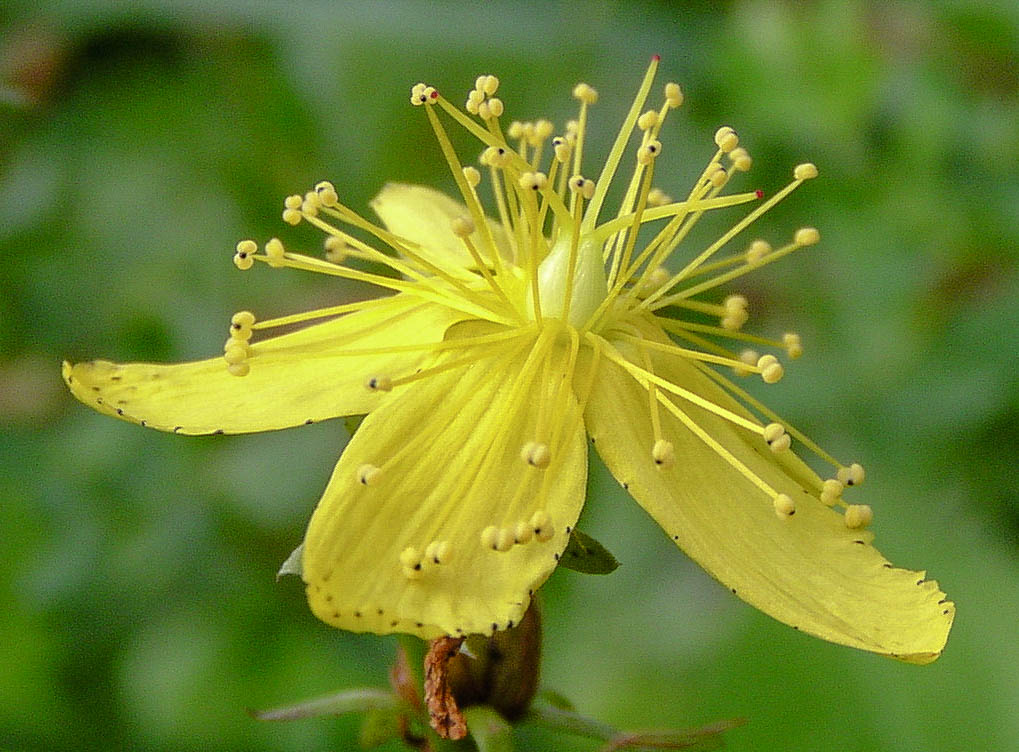
Treatment Considerations
Peripheral neuropathy is challenging to treat. It often takes a long time before the symptoms appear, but the damage may have been accruing over many years. There are two herbs that I think can help with nerve repair. The one I rely on most is Prickly ash (Zanthoxylum clava-herculis), followed by St. Johnswort (Hypericum perforatum). I use these externally and internally. Another category to consider is antiinflammatories, especially when the nerves have been damaged by trauma or repetitive use. These again can be used internally and externally and include Arnica (Arnica species), Licorice (Glycyrrhiza species), and Black birch (Betula lenta). Connective tissue tonics are another consideration for helping repair local tissue damage with herbs such as Gotu kola (Centella asiatica) and Horsetail (Equisetum species). Sometimes, using rubefacient herbs such as Cayenne pepper (Capsicum annuum) can help by reducing local pain and increasing blood flow into an area.
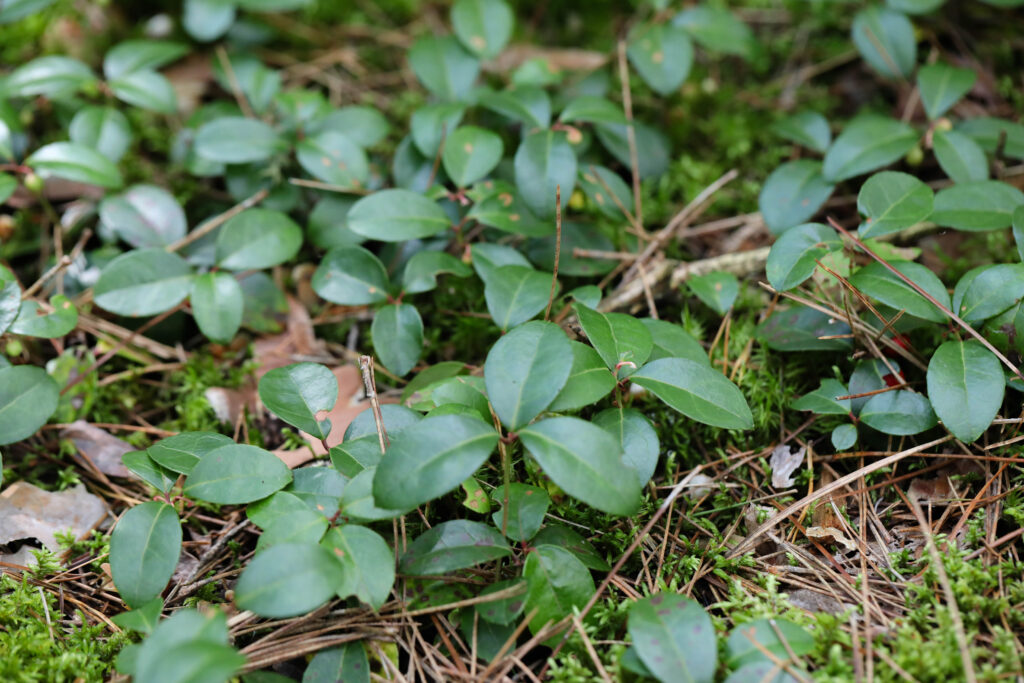
Herbal Categories for Peripheral Neuropathy
- Analgesic/Pain aid
- Antiinflammatory
- Bioavailability
- Blood sugar aid
- Connective tissue tonic
- Nerve repair
- Rubefacient/Counter irritant
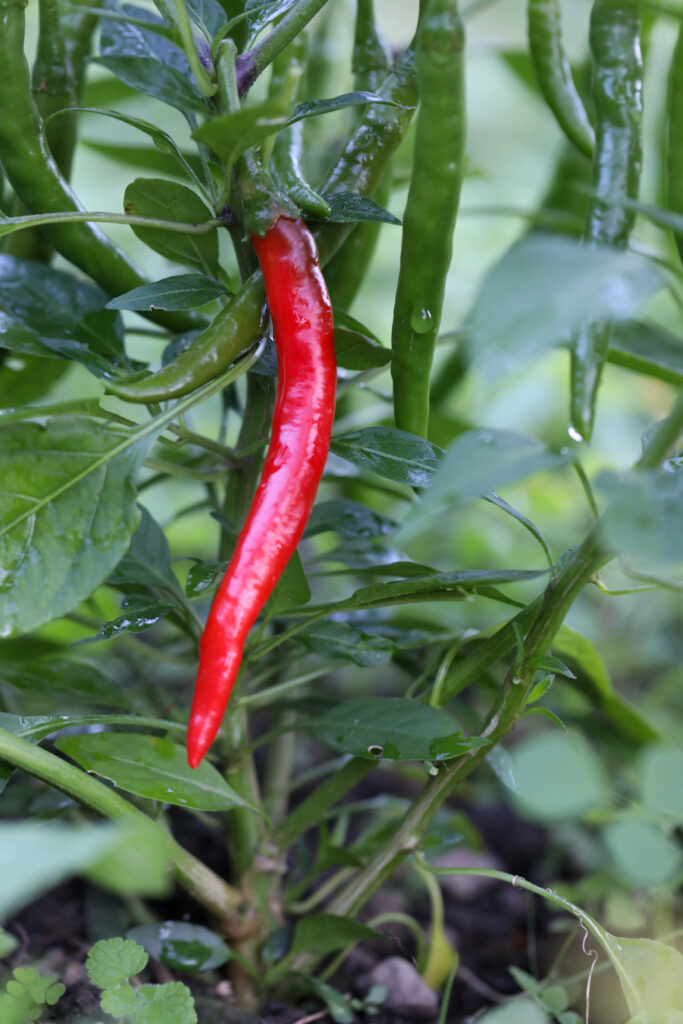
(Capsicum annuum, Solanaceae).
Medicinal Plants and Categories
Analgesic/Pain aid
Cannabis/CBD (Cannabis species)
Cayenne pepper (Capsicum annuum)
Lobelia inflata
Antiinflammatory
Arnica (Arnica species)
Black birch (Betula lenta)
Devil’s claw (Harpagophytum procumbens)
Feverfew (Tanacetum parthenium)
Ginger (Zingiber officinale)
Japanese knotweed (Reynoutria japonica)
Licorice (Glycyrrhiza species)
Turmeric (Curcuma longa)
Willow (Salix species)
Wintergreen (Gaultheria procumbens)
Bioavailability
Cayenne pepper (Capsicum annuum)
Blood sugar aid
Barberry (Berberis species)
Cinnamon (Cinnamomum species)
Oregon graperoot (Berberis species
Connective tissue tonic
Gotu kola (Centella asiatica)
Horsetail (Equisetum species)
Nerve repair
Ginkgo (Ginkgo biloba)
Lion’s mane mushroom (Hericium erinaceus)
Prickly ash (Zanthoxylum clava-herculis)
St. Johnswort (Hypericum perforatum)
Rubefacient/Counter irritant
Cayenne pepper (Capsicum annuum)
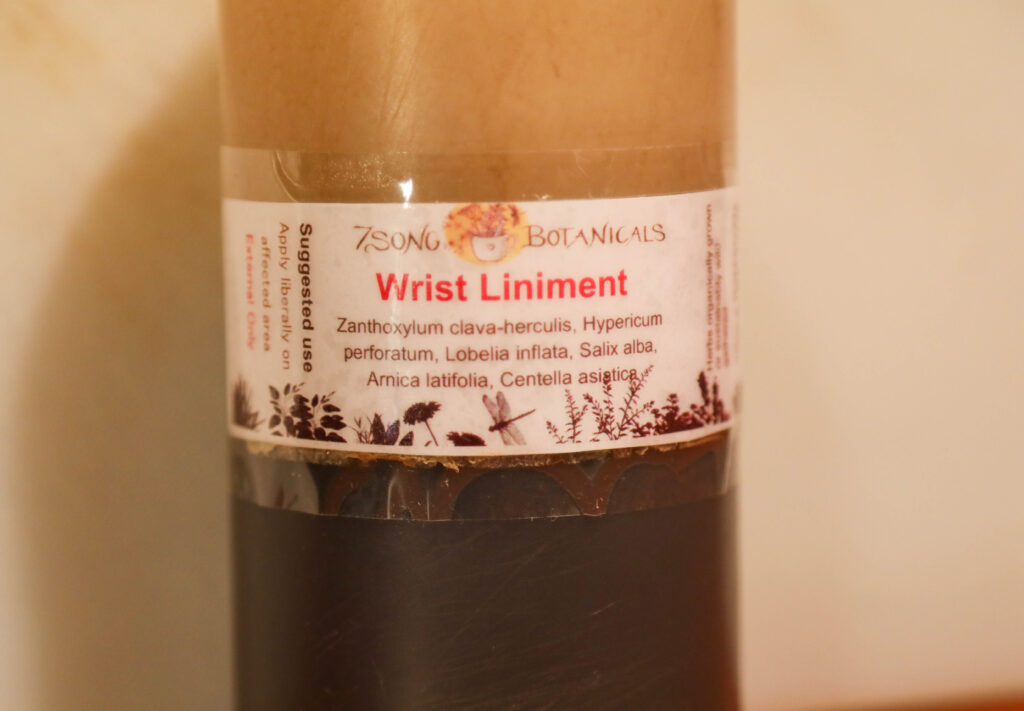
Carpal Tunnel Liniment
I use this liniment for carpal tunnel and similar compressed nerve syndromes. It is used topically.
Caution, liniments can dry out the skin. All of these plants are extracted in isopropyl alcohol.
Wrist Liniment
Zanthoxylum clava-herculis 4 pt
Hypericum perforatum 3 pt
Arnica latifolia 2 pt
Salix alba 2 pt
Centella asiatica 2 pt
Lobelia inflata 1 pt
Dosage-apply topically 1-2 times daily
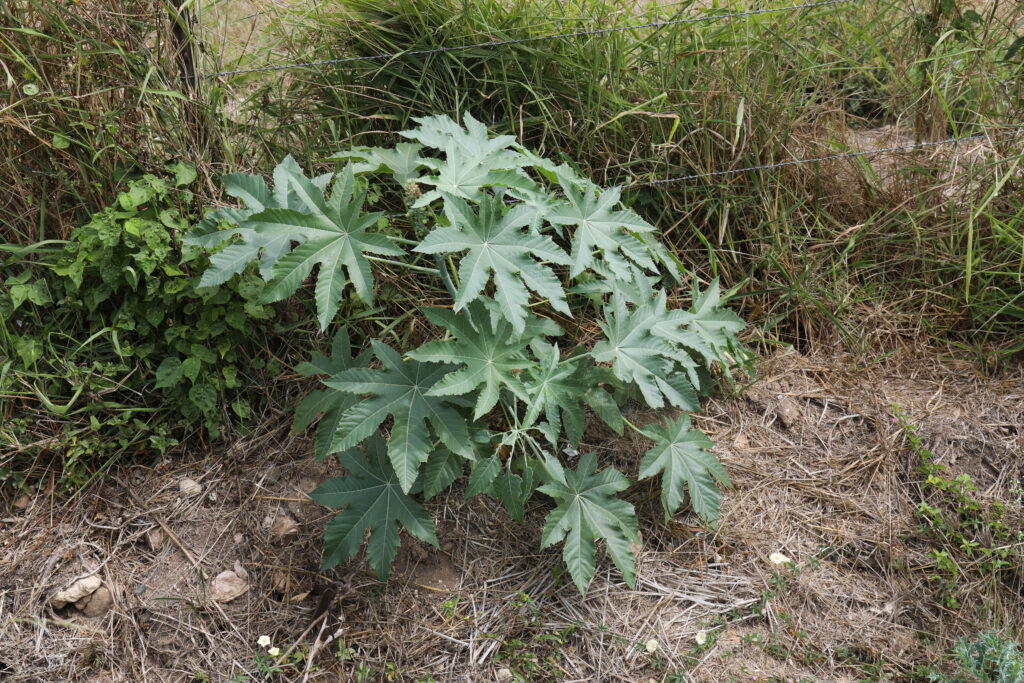
Closing Thoughts
While medicinal plants may sometimes be helpful for symptoms of peripheral neuropathy, it can be a long-term damaging disorder, and professional medical advice and intervention may be necessary. And if it is connected to other diseases, such as diabetes, this should also be addressed medically.
I would like everyone to know the benefits of herbal medicine but also realize its limitations. With peripheral neuropathy, it is helpful to seek out information and treatment from multiple modalities, including acupuncture, massage, and bodywork.
I hope this information has been helpful to you. ~7Song
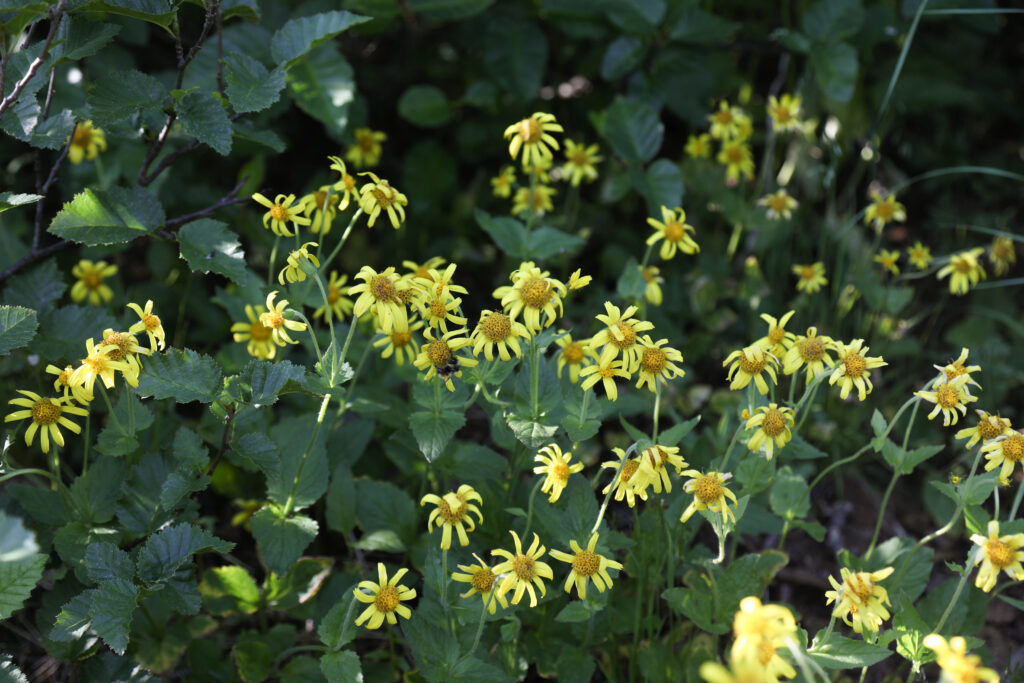
Three Guardsman Mountain, BC, Canada
